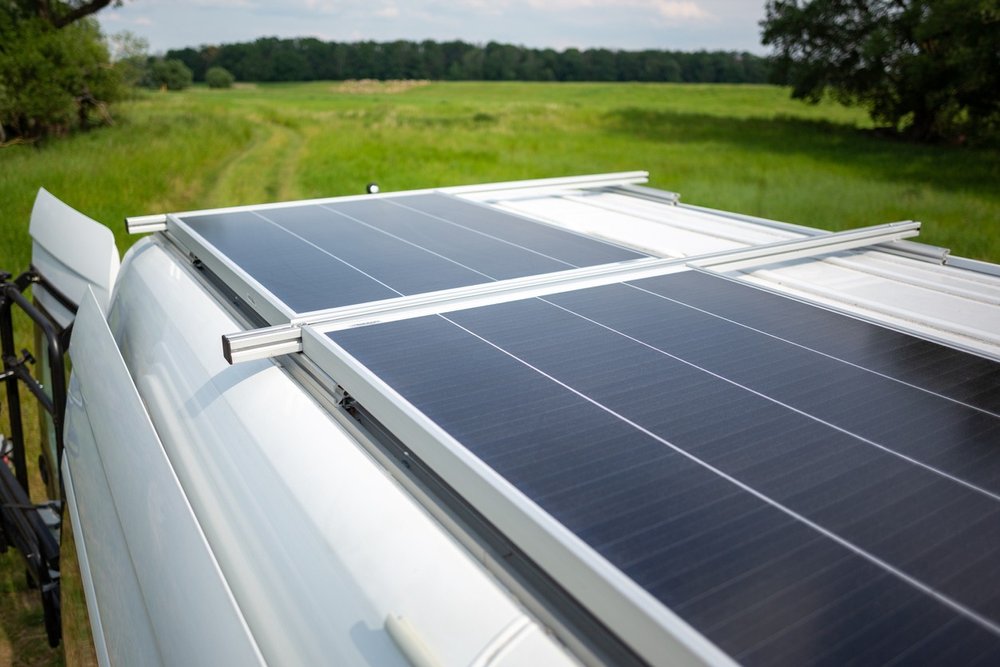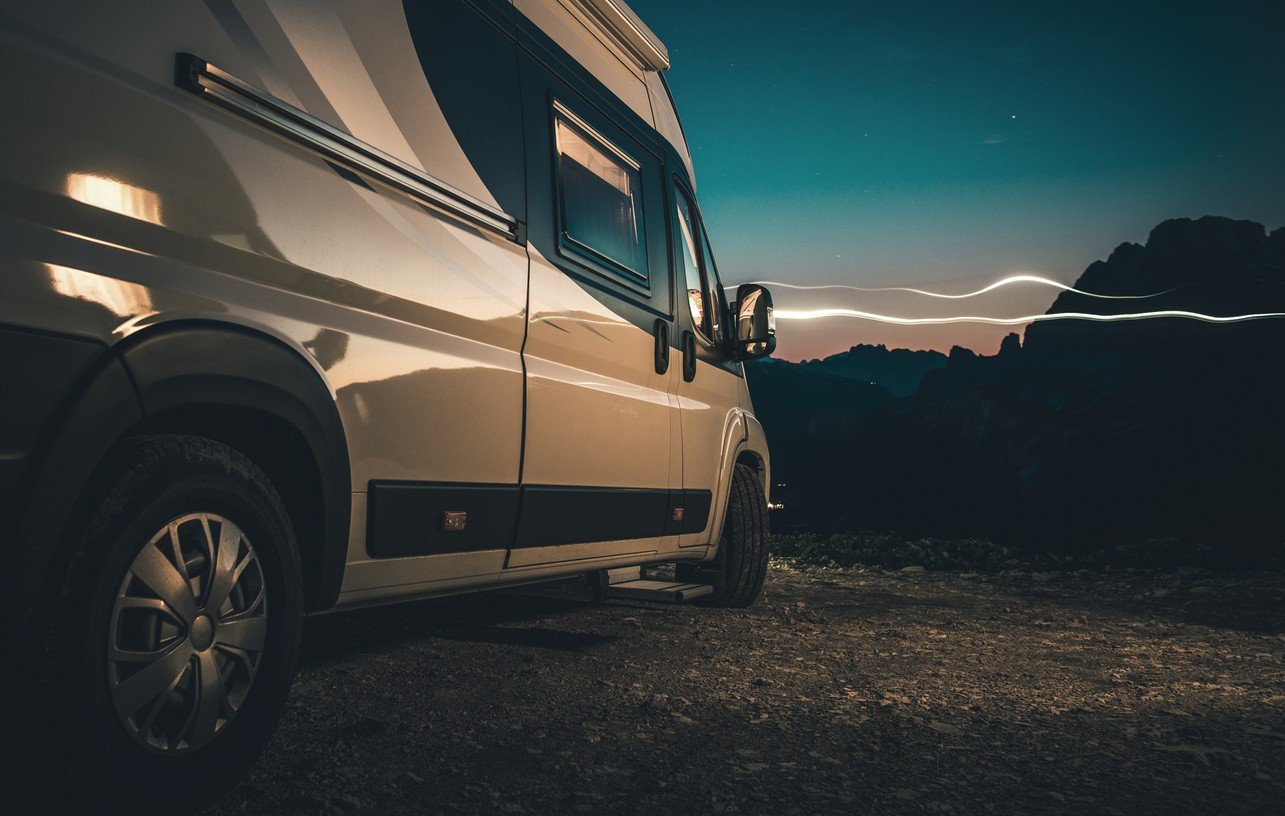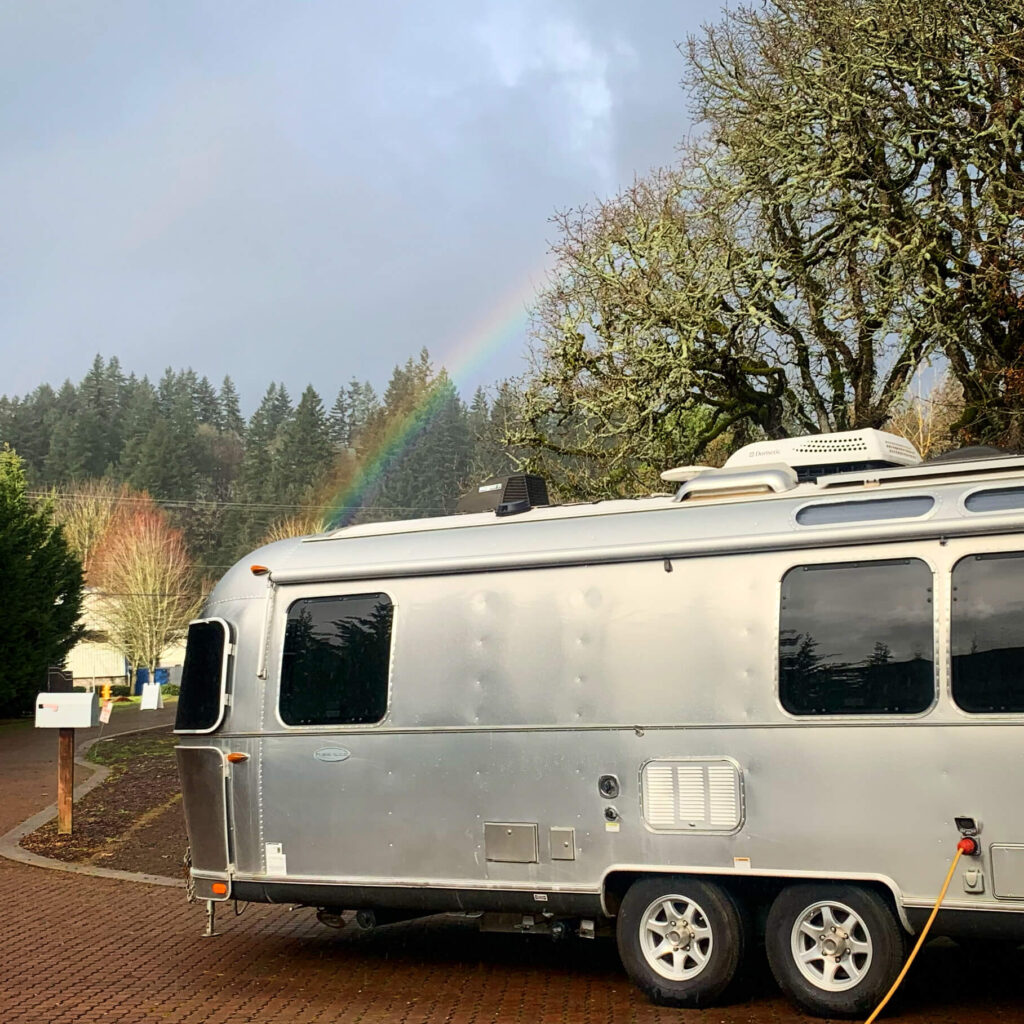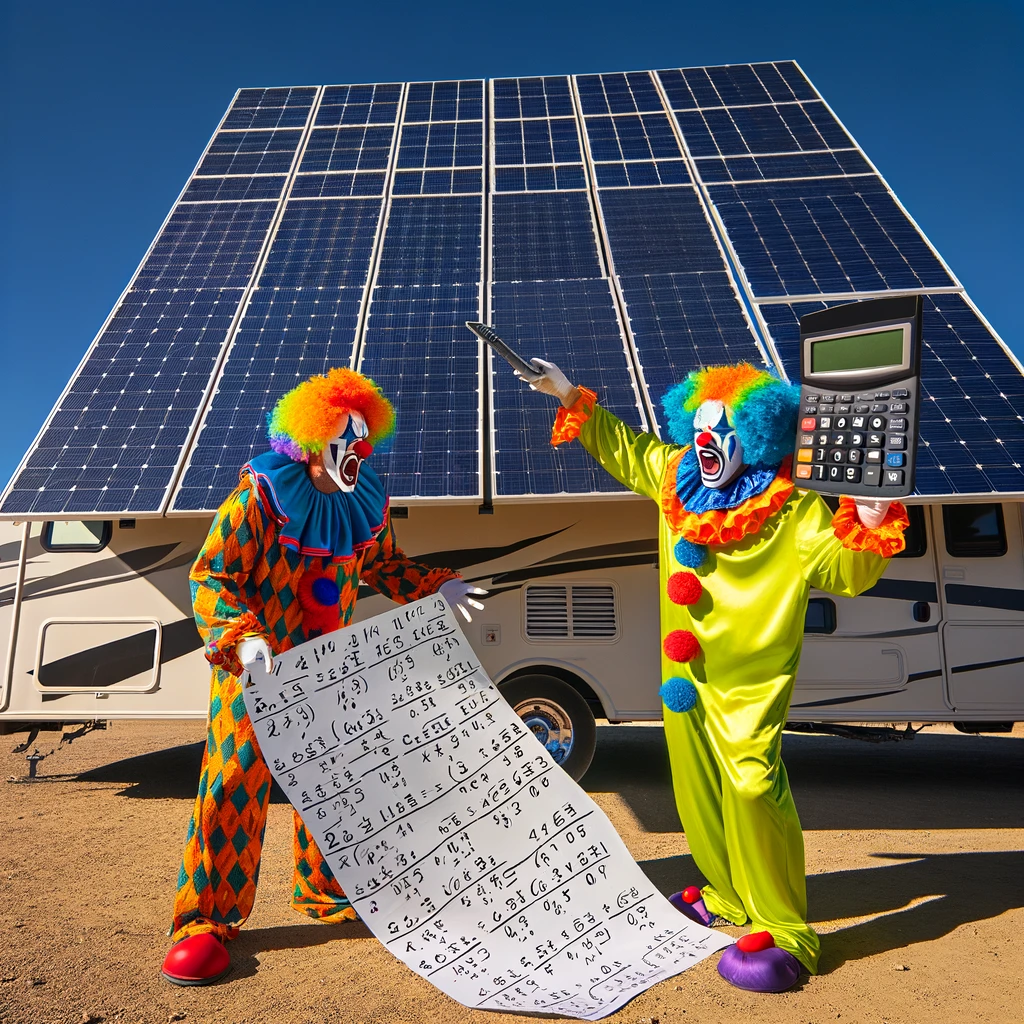One of the biggest benefits of RV travel is the ability to camp just about anywhere your wheels can take you. But most RVers will agree that camping without the benefit of your full electrical system leaves something to be desired. When it comes to keeping the lights on and the juice flowing while on the go, the choice often comes down to two methods – solar panels vs. a generator for your RV. Each has its own unique pros and cons that may make it more suitable for one type of RVer or another. We’re taking a deep dive into these two options to figure out which one’s best for you.
Comparing Solar Panels and Generators
To start, let’s focus on what both solar panels and generators do well. Without being connected to shore power and the general electrical grid, your RV needs some way to create power. Both solar panels and generators do this with different inputs. Unlike running solely on your rig’s batteries, both generators and solar panels allow you to enjoy full AC electricity for all the conveniences of home.
Solar panels take the energy of the sun and transform it into usable DC electricity. This energy typically flows from the panels to a solar charge controller, which regulates the flow of power to prevent overcharging of your batteries. This charge controller also prevents energy from flowing out of your batteries back toward the panel during hours when power isn’t being generated. After passing through the controller, the energy is either used by your RV’s electrical system or stored in a battery bank. In the past, these batteries were usually deep-cycle, lead-acid batteries or modified versions like AGM batteries. These days, many solar users are opting for lithium-ion batteries, which offer advantages in size, weight, battery capacity, and the ability to discharge fully. While purchasing a lithium battery will cost more up front, many owners find the extra expense worth it as they also have a substantially longer lifespan than other types of batteries.
In contrast, generators (more specifically, inverter generators in most cases) run on ordinary gasoline, which is burned to create usable AC power. This power flows directly into your rig’s electrical systems until you turn off the generator or run out of fuel. Many generators can rev up with the push of a button, providing on-demand juice for your RV. They can even be used to charge your rig’s batteries for later off-grid use. Generators come in a variety of sizes, with larger models naturally being able to provide more power.
From here, the two systems can differ widely. Let’s take a closer look at the particulars of the generator vs. solar panels for RVs debate.
Benefits of Solar Panels

Among the most significant benefits of solar panels is their entirely green and renewable nature. Those concerned about climate change can reduce their carbon footprint by relying more on these environmentally friendly sources of power, as opposed to typical fossil fuels. Even better, the green energy that panels run on is entirely free and available in nearly unlimited quantities. This means no ongoing costs for fuel or materials once you’ve got your system set up. They’re also notably quiet, especially compared to alternative off-grid power options. With the combination of solar panels, an inverter, and a battery bank, you may never need to connect to the fossil fuel grid again!
Once they’re installed, solar panel systems are generally low maintenance as well. Unless they’re physically damaged, or a battery degrades over time, they’ll typically just operate as expected day after day. Solar installations also have the advantage of longevity. In some cases, panels can last two decades or more, two to four times as long as generators. Finally, they’re relatively lightweight compared to generators. This is particularly important for RVers who move around a lot, as decreased weight improves gas mileage and drivability.
Finally, solar panels are an investment in the future. They’re becoming more and more common on newer high-end motorhomes and trailers, meaning buyers are coming to expect them. If you ever plan on selling your RV, having a functioning solar system may end up nearly paying for itself in increased resale value.
Drawbacks of Solar Panels
One of the biggest drawbacks of solar panels should be apparent. In poor weather conditions or without ample direct sunlight, your panels may not generate enough or any electricity. If you’re relying on them as your primary source of power, this could present problems during periods of extended stormy or cloudy weather.
Getting solar panels ready to use is also more complicated than revving up a generator, either in the initial installation time for permanently mounted panels or each time for portable models. Between this and the costs (which we’ll discuss later), solar panels tend to be a less ideal fit for casual campers and more suitable for frequent or full-time travelers.
The sun only puts out so much energy per square foot, and solar panels can only harvest a small portion of that— about 35W/SF which can generate about 100Wh per square foot per day. If you don’t have the roof space to mount enough panels to cover your loads, you will need a back-up power source.
Also, it may seem minor, but you’ll need to ensure your RV is parked in a place where it can receive direct sun. This means no shady tree-lined campsites, nothing near the walls of a canyon or mountain, and other restrictions on your campsite and views.
Benefits of Generators

Generators offer the benefit of providing on-demand energy day or night, regardless of weather conditions. So, all you’ll need is some fuel, and you’re in business. Usually, the juice is flowing with just a push of a button or flick of a switch. This flexibility and convenience can come in handy when you need to get powered up fast.
Compared to solar panels, generators are also relatively easy to install and use. Portable generators can be put into place in just minutes, and even permanently installed RV generators can be set up by most RVers. This makes them a suitable choice for occasional campers.
Drawbacks of Generators
Generators only work if you’ve got fuel on hand, forcing you to either draw from your rig’s gas tank or supply your own from other storage containers. If you’re boondocking deep in the woods and run out of fuel, you’re simply out of luck until you return to civilization. Your generator also needs regular maintenance, like any other machine. This means more time and money just to keep things working as expected.
Another generator drawback will be very familiar to those who’ve used them or even camped near someone using one – noise pollution. While some generators are specifically designed to reduce noise, many models range from loud to practically deafening. This can be annoying for both you and those nearby, especially since they don’t even get to enjoy the benefits of the generator! Plus, many campgrounds and RV parks have quiet hours rules that prohibit the use of generators, potentially leaving you powerless once the late evening arrives.
Cost Comparison
All these advantages and disadvantages aside, the price may be a determining factor for some buyers. On a per-watt basis, generators are almost always going to be the cheaper option at the time of purchase. Gas RV generators that provide 2,000-3,500 watts can often be found for just a few hundred dollars. Most average solar power systems cost upwards of a thousand dollars up to several thousand or more as an initial outlay.
Another critical thing to keep in mind looking at costs when comparing solar panels vs. a generator for RVs is the ongoing costs associated with each. As mentioned above, solar panels draw their energy directly from the free, unlimited rays of the sun. As a result, owners don’t need to worry about purchasing fuel to keep the lights on. In comparison, generators require owners to continually buy a supply of gas or diesel. As anyone who’s filled up their tank recently knows, this can be a significant expense, and one you need to keep paying or else your generator will be useless. Therefore, while solar power systems require more of an upfront investment, it’s possible to end up spending the same or even more on fuel costs over the life of a generator.
Power Up with AM Solar

By now, it should be clear that it’s not necessarily an either-or situation. Generators can undoubtedly have their place in an off-grid power setup, thanks to their ability to produce electricity on-demand and relative affordability. But solar panels are a crucial and underused source of clean, renewable energy that can go anywhere. They’re quiet, lightweight, and low maintenance as well, providing distinct benefits compared to generators. And there’s nowhere better to get started on your solar energy journey than with AM Solar. Reach out today to learn about the solar power system that’s right for you!




